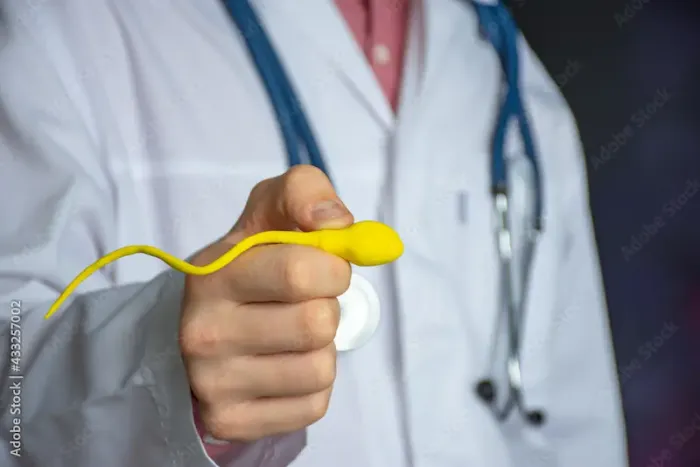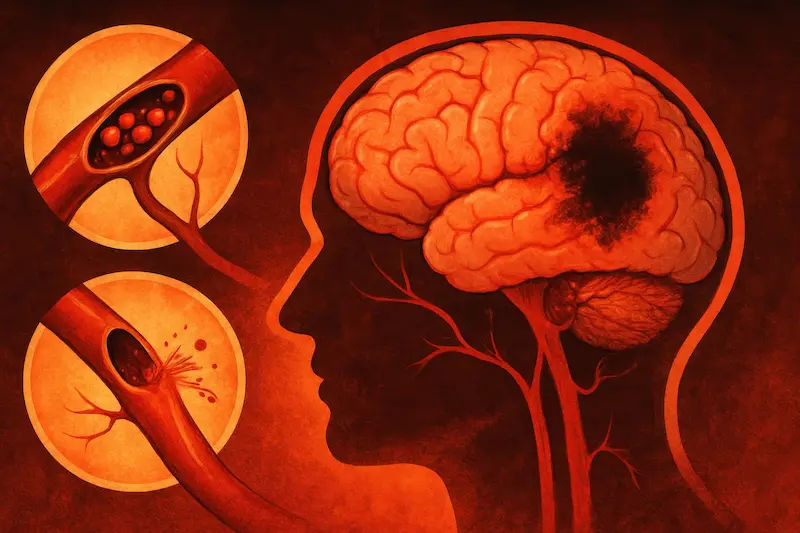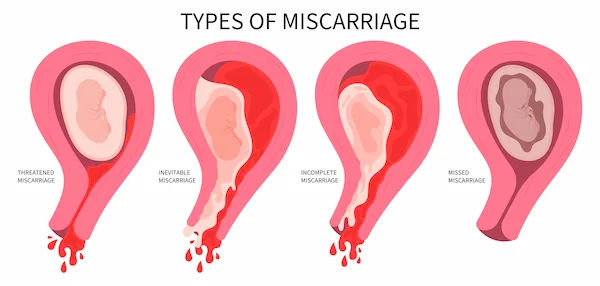Male Infertility Signs, Causes, and Solutions
Know about male infertility, causes, recognise signs and symptoms, diagnosis, treatment options and lifestyle changes for better semen health.

Written by Dr. Md Yusuf Shareef
Reviewed by Dr. Shaik Abdul Kalam MD (Physician)
Last updated on 13th Jan, 2026

Introduction
The journey to parenthood is a shared dream for many couples. When challenges arise, it's crucial to understand that fertility is a couple's issue, not an individual's. While often overlooked, male infertility is a contributing factor in about one-third of all cases. Recognising the signs of male infertility is the first empowering step toward finding effective solutions. This guide will demystify the topic, exploring the common and less obvious indicators, their underlying causes, and the modern paths to diagnosis and treatment.
Understanding the Basics of Male Fertility
How Sperm Production and Delivery Work
Fertility in men hinges on a complex, finely tuned system designed to produce healthy sperm and deliver them effectively. This process, known as spermatogenesis, occurs in the testes and takes approximately 74 days to complete. For conception to be possible, the hypothalamus and pituitary gland in the brain must release hormones that signal the testes to produce testosterone and sperm. Once produced, sperm mature in the epididymis and are transported through the vas deferens during ejaculation. They mix with fluids from the seminal vesicles and prostate gland to form semen. Any disruption in this intricate process can lead to signs of infertility.
Consult a Urologist for Personalised Advice
What Are the Primary Signs of Male Infertility?
The Inability to Conceive
The most definitive sign of a potential fertility issue is the inability to achieve a pregnancy after one year of regular, unprotected intercourse. This is the clinical definition of infertility and the main reason couples seek help.
Changes in Sexual Function
Erectile Dysfunction (ED)
Difficulty achieving or maintaining an erection can prevent sperm from being deposited in the vagina, making conception impossible.
Problems with Ejaculation
This includes delayed ejaculation, retrograde ejaculation (where semen enters the bladder instead of exiting the penis), or a complete absence of ejaculation (anejaculation).
Pain, Discomfort, or Physical Abnormalities
• Pain, swelling, or a lump in the testicle area: This could indicate a varicocele, infection, or other concerning issue.
• Recurrent respiratory infections: This can be a rare sign of Kartagener's syndrome, a condition that also impairs sperm motility.
• Decreased facial or body hair: This may suggest an underlying hormonal imbalance or chromosomal abnormality affecting testosterone levels.
Delving Deeper: The Root Causes of Male Infertility
Understanding the signs means exploring their origins. The causes of male infertility are typically categorised into medical, environmental, and lifestyle factors.
Medical Causes of Infertility
Varicocele: The Most Common Reversible Cause
A varicocele is a swelling of the veins that drain the testicle, similar to a varicose vein in the leg. It is present in about 15% of all men and in approximately 40% of men evaluated for infertility. The condition raises the temperature in the scrotum, which can impair sperm production, morphology, and count. Surgical repair of a varicocele can often improve semen parameters.
Infections and Their Impact
Certain infections can interfere with sperm production or health or cause scarring that blocks the passage of sperm. These include inflammation of the epididymis (epididymitis) or testes (orchitis), and some sexually transmitted infections like gonorrhea or HIV. While some damage can be permanent, treating the infection is always a crucial first step.
Hormonal Imbalances and Endocrine Disorders
Infertility can result from disorders of the testicles themselves or an abnormality affecting other hormonal systems, including the hypothalamus, pituitary, thyroid, and adrenal glands. Low testosterone (hypogonadism), high prolactin levels, and thyroid problems can all disrupt the hormonal cascade necessary for sperm production.
Genetic and Chromosomal Defects
Inherited disorders like Klinefelter's syndrome (where a male is born with an extra X chromosome), cystic fibrosis (which often causes absence of the vas deferens), and other genetic syndromes can cause underdeveloped reproductive organs or complete absence of sperm (azoospermia).
Problems with Sperm Delivery
Blockages (obstructions) can occur anywhere in the reproductive tract due to causes like prior surgeries (e.g., vasectomy), infections, or developmental defects. Retrograde ejaculation, where semen enters the bladder, can be caused by diabetes, spinal injuries, or medications.
Environmental and Lifestyle Causes
The Dangers of Industrial Chemicals and Heavy Metals
Prolonged exposure to benzene, toluene, xylene, pesticides, herbicides, organic solvents, and lead may contribute to low sperm counts and poor sperm health. Men working in agricultural, painting, or manufacturing industries should be particularly mindful.
Radiation and X-ray Exposure
Radiation exposure can reduce sperm production. It can take several years for sperm production to return to normal after high-dose exposure. In some cases, the damage is permanent.
Overheating the Testicles
Frequent use of saunas, hot tubs, or placing a laptop directly on your lap for extended periods can elevate scrotal temperature and temporarily impair sperm production. Even sitting for long hours or wearing tight clothing may have a minor effect.
Lifestyle and Health Factors
Drug, Alcohol, and Tobacco Use
1. Smoking: Men who smoke may have a lower sperm count than non-smokers. Secondhand smoke can also affect male fertility.
2. Alcohol: Excessive alcohol use can lower testosterone levels, cause erectile dysfunction, and decrease sperm production.
3. Anabolic steroids: Used to stimulate muscle strength and growth, these hormones can cause the testicles to shrink and sperm production to plummet.
4. Marijuana and Opioids: These drugs can significantly disrupt hormone function and reduce sperm quality and count.
Obesity and Its Role
Obesity can impair fertility in several ways. It can directly impact sperm quality and also cause hormonal changes that reduce male fertility. Studies have shown that a higher body mass index (BMI) is often correlated with reduced sperm count and motility.
The Impact of Mental Stress and Depression
Severe or prolonged emotional stress, including depression, can interfere with certain hormones needed to produce sperm. Stress can also lead to sexual dysfunction, further complicating conception efforts. If you are experiencing persistent stress or symptoms of depression, it's important to seek help. Consulting a therapist or a doctor online with Apollo24|7 can be a convenient first step to managing your mental well-being.
How is Male Infertility Diagnosed?
If you and your partner have been trying to conceive for a year without success, it's time to see a doctor. Diagnosis typically involves a general physical exam, a detailed medical history, and one key test.
The Semen Analysis: A Cornerstone Test
This is the most important test for male fertility. It evaluates:
• Sperm Count: The number of sperm present.
• Sperm Motility: The percentage of sperm that are moving and how well they move.
• Sperm Morphology: The size, shape, and appearance of the sperm.
• You will be asked to provide a semen sample, usually through masturbation into a sterile cup.
For accurate results, doctors often recommend two separate tests over a period of time. Apollo24|7 offers convenient home collection for tests like semen analysis, allowing you to provide a sample in the comfort and privacy of your own home, which is then transported to a certified lab for analysis.
Further Diagnostic Testing
If the semen analysis is abnormal, further tests may be ordered:
1. Hormonal Testing: Blood tests to check testosterone, FSH, LH, and prolactin levels.
2. Scrotal Ultrasound: To look for varicoceles or other problems in the testicles and supporting structures.
3. Genetic Tests: To identify if a chromosomal defect is the cause.
4. Testicular Biopsy: In cases of azoospermia, this can determine if sperm production is normal.
Treatment Options and Improving Your Chances
The good news is that many causes of male infertility are treatable.
Medical and Surgical Treatments
Treatments depend on the cause and may include:
1. Medications: To treat infections, hormone imbalances, or erectile dysfunction.
2. Surgery: To repair a varicocele or reverse a vasectomy/remove a blockage.
3. Assisted Reproductive Technology (ART): This includes treatments like In Vitro Fertilisation (IVF) and Intracytoplasmic Sperm Injection (ICSI), where sperm is collected and then used to fertilise an egg in a lab.
Lifestyle Changes for Better Sperm Health
You can take proactive steps to improve your fertility:
1. Maintain a healthy weight.
2. Eat a balanced diet rich in antioxidants (fruits, vegetables, nuts).
3. Manage stress through exercise, meditation, or yoga.
4. Avoid smoking, illicit drugs, and excessive alcohol.
5. Keep the testicles cool by avoiding hot tubs and tight underwear.
Conclusion
Recognising the signs of male infertility is not about assigning blame, but about empowering yourself with knowledge. From the primary sign of difficulty conceiving to more subtle clues like hormonal changes, understanding these indicators opens the door to effective diagnosis and treatment. The causes are multifaceted, encompassing medical conditions like varicoceles and infections, as well as lifestyle factors such as diet, stress, and substance use. The cornerstone of diagnosis is a simple semen analysis, which can provide a clear direction for the next steps. The most important takeaway is that you are not alone, and help is available. Many treatments, from lifestyle modifications and medication to advanced reproductive technologies, have helped countless couples achieve their dream of parenthood. Booking a consultation with a urologist or fertility specialist through Apollo24|7 can provide you with expert guidance.
Consult a Urologist for Personalised Advice
Consult a Urologist for Personalised Advice
Dr S K Singhanina
Urologist
25 Years • MBBS/MS/DNB AND MCH UROLOGY
Guwahati
Apollo Clinic Guwahati, Assam, Guwahati

Dr. Ramesh H
Urologist
16 Years • MBBS, MS , Mch( Urology)
Bengaluru
Apollo Clinic, JP nagar, Bengaluru

Dr. Sudhakar G V
Urologist
25 Years • MBBS, MS(Gen.Surgery), DNB Urology
Bengaluru
Apollo Clinic, JP nagar, Bengaluru

Dr. Pavan Kumar S K
Urologist
11 Years • MBBS, MS , Mch( Urology) DNB (Urology)
Bengaluru
Apollo Clinic, JP nagar, Bengaluru

Dr. Prabir Basu
Urologist
19 Years • MBBS, MS General Surgery, DNB Genito-Urinary Surgery
Jodhpur Park
Dr. Prabir Basu urology clinic, Jodhpur Park
(200+ Patients)
Consult a Urologist for Personalised Advice
Dr S K Singhanina
Urologist
25 Years • MBBS/MS/DNB AND MCH UROLOGY
Guwahati
Apollo Clinic Guwahati, Assam, Guwahati

Dr. Ramesh H
Urologist
16 Years • MBBS, MS , Mch( Urology)
Bengaluru
Apollo Clinic, JP nagar, Bengaluru

Dr. Sudhakar G V
Urologist
25 Years • MBBS, MS(Gen.Surgery), DNB Urology
Bengaluru
Apollo Clinic, JP nagar, Bengaluru

Dr. Pavan Kumar S K
Urologist
11 Years • MBBS, MS , Mch( Urology) DNB (Urology)
Bengaluru
Apollo Clinic, JP nagar, Bengaluru

Dr. Prabir Basu
Urologist
19 Years • MBBS, MS General Surgery, DNB Genito-Urinary Surgery
Jodhpur Park
Dr. Prabir Basu urology clinic, Jodhpur Park
(200+ Patients)
More articles from General Medical Consultation
Frequently Asked Questions
1. What is the most common cause of male infertility?
The most common cause is a varicocele, which is an enlargement of the veins within the scrotum. It affects about 40% of men with infertility issues and is often reversible with treatment.
2. Can lifestyle changes really improve sperm count?
Yes, significant improvements can be seen. Quitting smoking, reducing alcohol, achieving a healthy weight, managing stress, and eating a diet rich in antioxidants can all positively impact sperm count, motility, and morphology within a few months.
3. How long does it take for sperm to regenerate?
The entire process of sperm production, from start to ejaculation, takes about 74 days. This means that positive lifestyle changes or medical treatments will take at least 2-3 months to show results in a semen analysis.
4. Is male infertility permanent?
Not always. Many causes, such as hormonal imbalances, infections, or varicoceles, are treatable. Even in cases where the cause isn't reversible, assisted reproductive technologies like IVF with ICSI can often help achieve a pregnancy.
5. When should we see a doctor about potential male infertility?
It's generally recommended to see a doctor if you and your partner have been trying to conceive with regular, unprotected intercourse for one year without success. If you are over 35, have known medical issues, or are experiencing symptoms like pain or erectile dysfunction, you may want to seek advice sooner.




